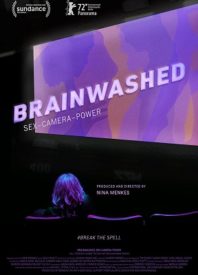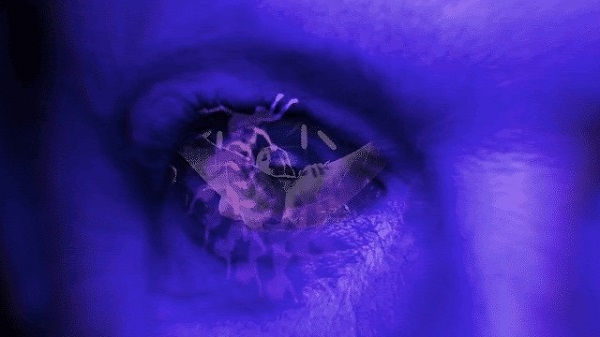
Nina Menkes, in her lecture turned documentary Brainwashed: Sex-Camera-Power, is a preacher saying some things that the choir might not already know. In one of the segments of her lecture, she talks about how some films from Old Hollywood. For example, Jon Huston’s The Night of the Iguana, have scenes that exist only to gratify the male gaze. Yes, that Laura Mulvey male gaze. That part seems true enough, but she makes some statements about the male gaze that feels absolute. Some of the things she claims include that the source of the gaze is immaterial, whether it comes from a mostly male director and the occasional female director. The gaze has some inherent power dynamics and is inherently sexual. She uses a sample size that feels bigger.
In fairness to Menkes, the films she shows don’t always fit her interpretation of the male gaze. One example is Julie Dash’s Daughters of the Dust. The film cuts clips from that film with Dash’s interview segments. And then it cuts to another scene that show Menkes watching that clip with love. That sentiment is noble enough. Although through her own lecture and through the interviews, she makes other connections about the male gaze. Specifically, that the gaze that most films employ contribute to the way patriarchal societies treat women with less respect that they do men. And further, that it contributes to the culture of sexual harassment that girls and women have to live with.
Menkes’ perspective on the films she chooses is understandable, as she’s both a filmmaker and a cinephile. And I’m not here to compare her film knowledge to mine. It’s just unfortunate that she uses clips from Old Hollywood and the New Wave. The occasional mentions of superhero films and ones on streaming platforms don’t make this film relevant enough. She is, after all, talking about an industry that in actuality changes its perception of women every decade. She also uses examples in, as others write, a reductive wav. One example includes Martin Scorsese’s After Hours. I get it, 80% of his films have skinny white blondes on them. But her interpretation of his and other male director’s works feel outside of a context that it deserves.
Menkes is correct about gender discrimination and sexual assault culture in Hollywood and other film industries. Most people who like me who are tangentially in the industry know that. A documentary about that would be correct if maybe an uninteresting one. But again, a big chunk of this film is her bad faith interpretations of films with Academy Award nominations. For example, Denis Villeneuve’s Blade Runner 2047 which she doesn’t get. Other writers have also pointed out that showing sexual clips of women by female directors feels disingenuous. If she’s going to say that a film like Lorene Scafaria’s Hustlers employs the male gaze she can at least have Scafaria as an interview subject. They can have a conversation about it instead of her passive aggressively implying that some female directors Uncle Toms.
There’s so many other ways to see the films that Menkes show that it’s so frustrating to see someone take the lazy road. The idea that the gaze is inherently sexual and objectifies women feels, again, lazy to me because of the different ways women and female characters manifest in films. How female characters exist in post-Disney revival, or what makes it different when female characters have either gender neutral of masculine signifiers. Laura Mulvey’s idea of the male gaze is a good starting point but where this film ends up taking that starting point is disappointing. And not to be what about men but male on male gaze is still the male gaze. And the ideal male has possibly similar harmful effects on audiences as female ones, despite their differences.
Brainwashed also has second wave gender essentialist ideas, like sex work is bad and that films make men rape. I did not survive the 90s only to hear dumb ideas from that decade. She also mishandles queer cinema like Silence of the Lambs. I don’t know if I can write ‘lastly’ on any idea because I’m sure I’ll come up with another complaint after I think that I’m done with this film. I write this even if I did like a films I watched two weeks ago that does feel male gaze-y. And eventually, I have to stop, eat, and go to sleep so I can watch something better. I just know that any ally or feminist cinephile have better ideas about the male gaze than the ones I saw here.
- Release Date: 11/1/2022


